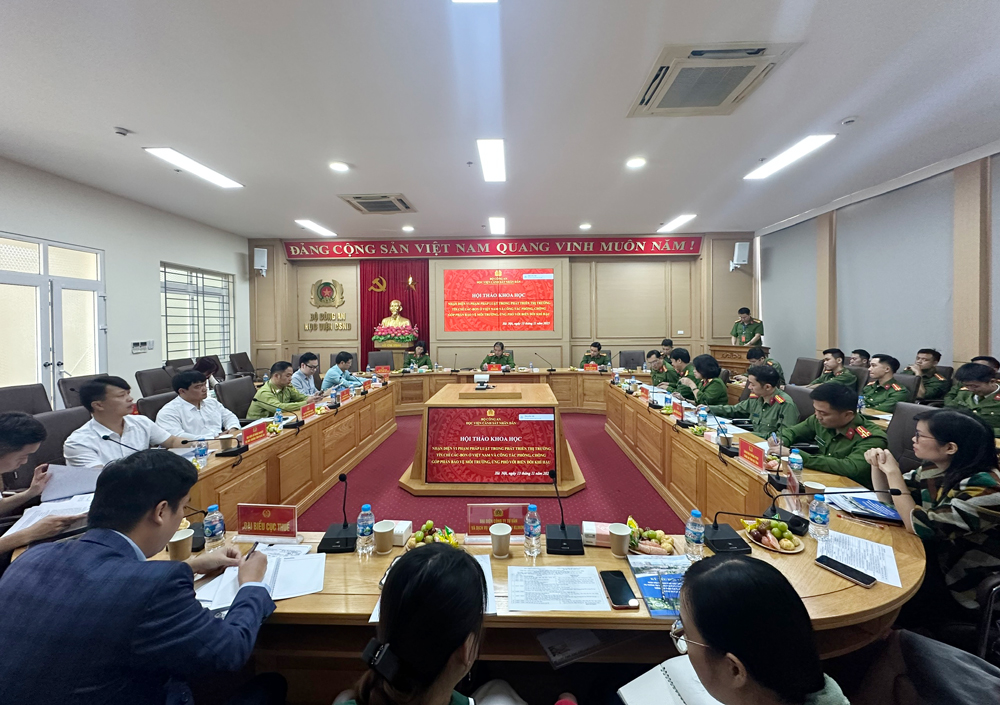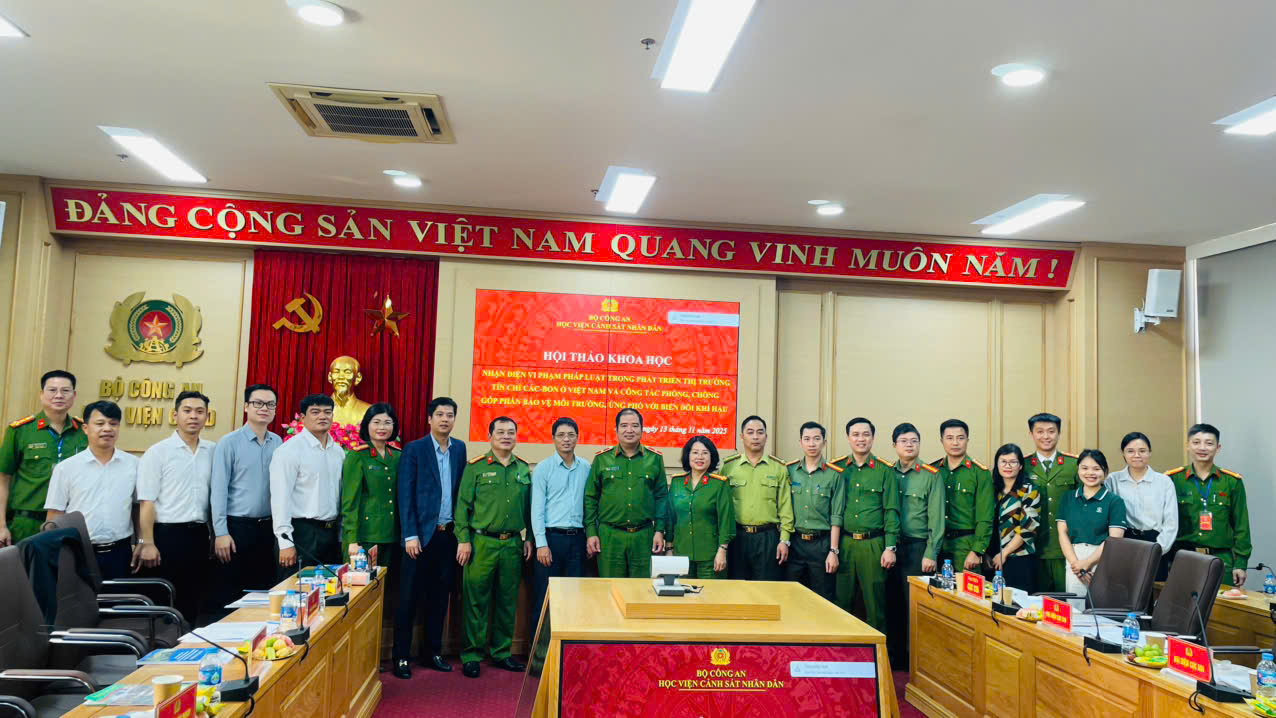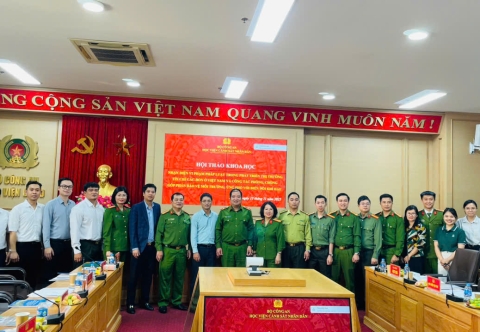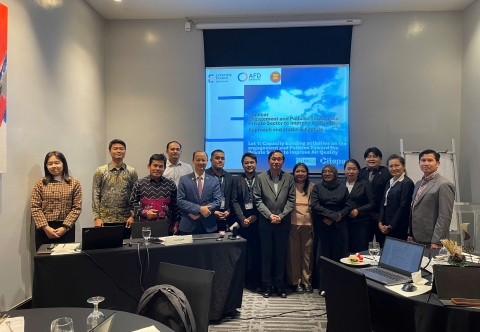
General view of the scientific conference. Source: PPA Portal
Attending the conference were representatives of the leadership of professional departments under the Ministry of Public Security, the Ministry of Agriculture and Environment, and the Ministry of Finance, agencies related to the operation of the domestic carbon credit market; representatives of Public Security units and localities; and experts and scientists from research institutes and universities inside and outside the Public Security sector.
This event affirmed that Vietnam has made a strong commitment to achieving net-zero emissions by 2050, in which the development of the carbon credit market is a key instrument. However, this is a new, complex, and cross-sectoral field, containing many risks of being exploited for legal violations, especially in economics, the environment, and high technology.
In this context, an urgent requirement is to identify early the risks, challenges, and forms of violations, thereby proposing effective preventive and enforcement solutions to ensure that the market operates transparently and safely, contributing to the goals of environmental protection and climate change response of the nation.
With this important and urgent significance, the conference became a forum for delegates to clarify core issues from theory to practice. The contents of presentations and discussions focused on four main aspects: First, delegates conducted in-depth studies to supplement and improve the fundamental understanding of the carbon credit market in Vietnam today. Second, they analyzed and comprehensively assessed the current situation of market development, thereby identifying clearly the difficulties, obstacles, and inadequacies that still exist, forming the basis for the requirements and tasks to improve the effectiveness of this work in the coming time.
The most crucial element is identifying specific potential legal violations, especially those related to economics, the environment, and the use of high technology, to formulate issues for effective prevention and combat. Finally, experts proposed strong orientations and solutions to prevent and combat violations, contributing significantly to completing mechanisms, policies, and the legal framework for managing greenhouse gas emissions in Vietnam, serving the goals of environmental protection and climate change response

Experts representing KLINOVA participating in the Workshop (right corner)
The Conference also acknowledged the active participation of the Climate Innovation Consulting and Services Company – KLINOVA. KLINOVA’s representatives contributed professional perspectives through the report “The Legal Nature of Carbon Credits under Vietnamese Law: Risks of Legal Violations and Recommendations,” authored by Dr. Nguyen Phuong Nam, Ms. Dang Tuong Vy, and Ms. Nguyen Xuan Dieu Linh. The study provided an in-depth analysis of the legal foundations of carbon credits in Vietnam, clarified potential risks in market management and operation, and offered recommendations to improve mechanisms and policies to limit the risk of legal violations.
The in-depth and dedicated opinions presented at the conference reached a unanimous conclusion that this is a new and complex issue requiring the coordinated involvement of multiple ministries and sectors. The results of the conference provide important theoretical and practical foundations for the People’s Police Academy to continue working with functional units to further research, advise, and report to the leadership of the Ministry of Public Security and competent authorities to improve the legal framework, develop plans and professional measures, and proactively prevent, detect, and effectively combat legal violations related to the carbon credit market.
The Minh
 Scientific conference on Identifying Legal Violations in the Development of the Carbon Credit Market in Vietnam
Scientific conference on Identifying Legal Violations in the Development of the Carbon Credit Market in Vietnam
_cr_480x332.jpg) 50 years Vietnam - Germany Alumni - Workshop: Journey from Pioneering to Sustainable Development in the Digital Age
50 years Vietnam - Germany Alumni - Workshop: Journey from Pioneering to Sustainable Development in the Digital Age
 Fostering Air Quality in ASEAN: Highlights from the “Engagement and Policies Toward the Private Sector to Improve Air Quality” Seminar
Fostering Air Quality in ASEAN: Highlights from the “Engagement and Policies Toward the Private Sector to Improve Air Quality” Seminar